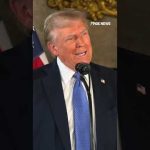In recent times, the issue of presidential pardons has resurfaced, particularly under the Biden administration. This power, designed for a noble purpose, is being wielded in ways that raise eyebrows and provoke questions. Is it time to reconsider the very existence of the presidential pardon? While it is unlikely that a constitutional amendment to abolish this power will ever see the light of day, it is essential to discuss the implications and potential pitfalls of allowing one individual the authority to grant freedom at will.
The recent pardons issued by President Biden offer a glaring example of concerns surrounding the misuse of power. Critics argue that the pardon system has transformed into a tool for political favor rather than a vehicle for justice and redemption. One cannot help but wonder if this power is being abused to further a progressive agenda while turning a blind eye to the consequences that affect everyday Americans. It seems that when the president uses this power, it often caters to those who may not deserve a second chance, while the average citizen bears the brunt of a system that no longer seems fair or just.
It is worth noting that the founding fathers conceived the pardon power as a means to grant mercy. However, in today’s world, where morality seems to fluctuate like a weather vane, the results can be worrisome. The founding fathers believed in guiding principles, but the current administration appears to be testing that very framework. Their actions demonstrate how far the nation has strayed from the virtues that once guided our leaders.
The issue is not entirely about the president’s current use of the pardon power; it raises questions about whether any leader should have such absolute authority over an individual’s freedom, particularly if the system is already failing. An unbridled presidential power to grant clemency could easily spiral into a mechanism for corruption and cronyism. When this power is held by someone lacking ethical judgment, the ramifications could extend far beyond political enemies and into the lives of countless individuals affected by such decisions.
In conclusion, while it may not be sensible to abolish the presidential pardon altogether, there is a pressing need for reevaluation of how this power is exercised. A system initially designed for good now faces risks of manipulation by leaders who may not adhere to the same standards of morality and justice espoused by the founding fathers. The dangers of allowing one person to determine who walks free cannot be underestimated, especially when that power is viewed as mere political leverage. As a society, we must err on the side of caution, ensuring that decisions affecting justice and morality remain rooted in our foundational principles.




